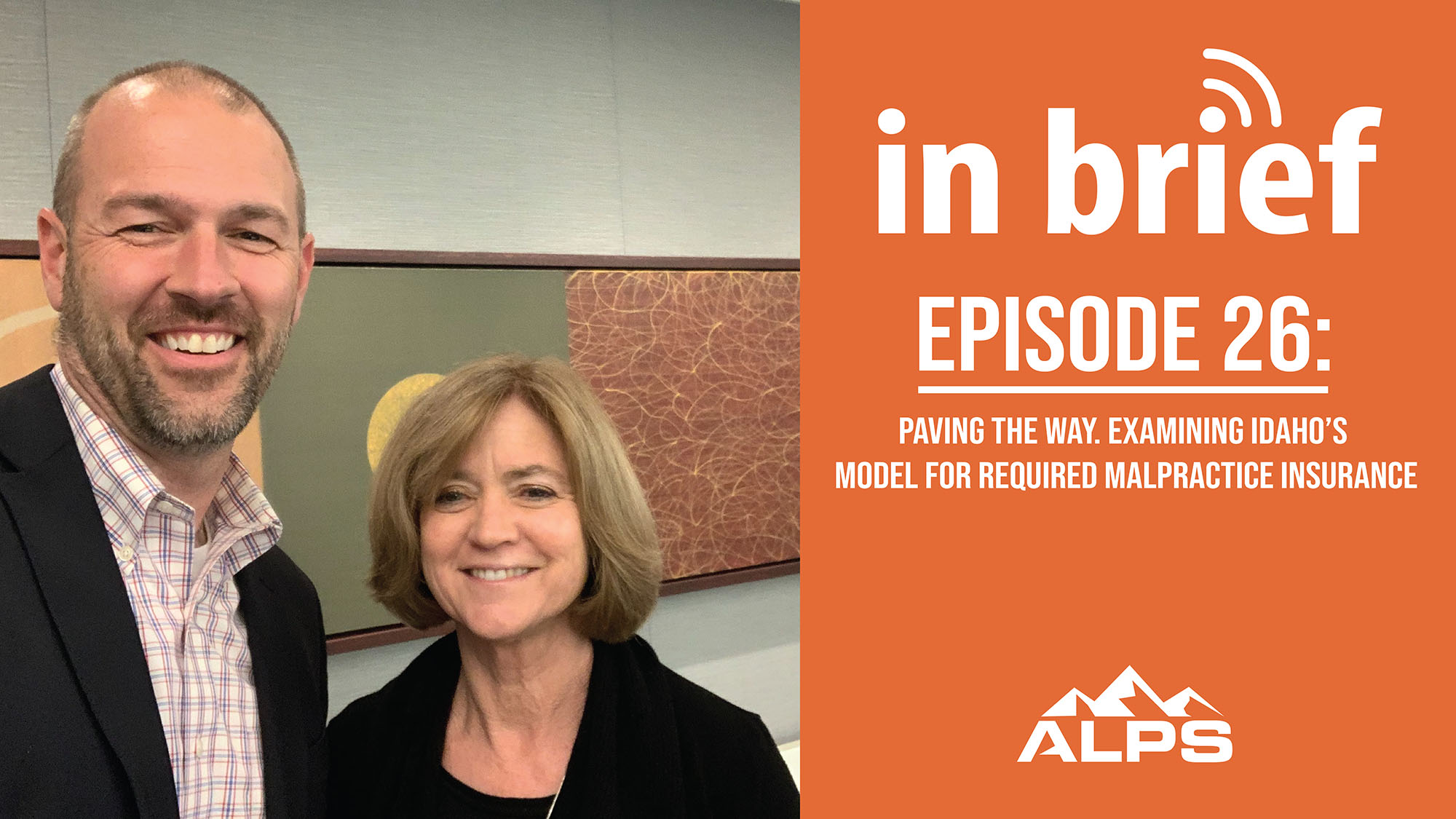9 min read
ALPS In Brief Podcast - Episode 26: Paving the Way. Examining Idaho’s Model for Required Malpractice Insurance
Last year, Idaho became the second state to require malpractice insurance for private practitioners — and the first to adopt an open-market model...
 Mark Bassingthwaighte, Risk Manager
Mark Bassingthwaighte, Risk Manager





